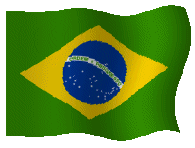
BACKGROUND
Brazil is a vibrant land of color and excitement. This fact is graphically acted out each year during the week-long Carnival which is celebrated with costumes, dancing, music and uninhibited merrymaking. Yet despite this worldly vitality Brazil exists in spiritual darkness and needs to know Jesus Christ, the One who alone gives true joy and meaning to life.
Brazil is the largest country in South America and the fifth largest in the world. Despite the huge land area, 90% percent of Brazil’s population of 158.2 million people live on 10% of the land. This is because much of the country is not easily accessible and is inhospitable to habitation. The capital city, Brasilia, was created for the purpose of encouraging the development of the largely unpopulated interior of the country.
Brazil existed as a Portuguese colony from 1500 to 1822. From that time until the present Brazil has experienced many political changes and upheavals. The nation is plagued by political polarization, economic inequality, the plight of the Amazon rainforest, violent crime and gangs, and child labor and prostitution.
Most Brazilians claim nominal loyalty to Roman Catholicism but many are becoming disenchanted with the dead ritual and legalism it represents. As many as 60% of Brazilian Catholics are involved in Spiritist and occultic practices.
Brazil is a land of endless horizons, not only physically but spiritually. The needs are tremendous and opportunities abound for Christians to offer hope to this great nation by introducing them to the Author of life.
TCM WORK IN BRAZIL
In 1958 TCM founder, Mr. Herbert Palmer received a response to an advertisement he placed in Moody Monthly magazine which offered Bible Study material to anyone who was interested. This correspondence came from Henrique Schmidt, a man of German descent who had immigrated to Brazil from Russia. He enthusiastically embraced the distinctive “Grace” doctrine presented in the material he received. The rest of his life was committed to seeking the lost for Christ and establishing them firmly in the truth of God’s Word. His efforts, along with those of several TCM missionaries resulted in establishing several churches southern Brazil under the umbrella of the national church organization, MCP. With the departure of TCM missionaries, Gomer & Nene Indino in 2023, the work in South Brazil was released fully to national leadership.
In 1988 Doug & Vicki LeFeber joined TCM as missionaries. They had been serving as missionaries in the city of Recife in North Brazil for a number of years and had established a growing congregation. In 1993 their daughter Michelle joined the work as a TCM missionary. Michelle married Joaquim “Joe” Campos In 1995 and they are currently serving with the LeFebers in North Brazil. They have been active in providing leadership and offering adult, youth and children’s ministries for two churches in Recife. They are also engaging in church planting efforts in other towns. Training for Brazilian believers is provided through modular courses. Project ABBA is their primary children’s outreach and ministry program.
OTHER PAST TCM MISSIONARIES TO BRAZIL
Roland (Bud) & Jetty Wilson
Warren & Shirley Keiper
Frank & Judy Valenza
Don & Arlene Fromer
Bernardo & Carol Craesmeyer
Vernon & Darlene Anderson
Mary Hobaugh
Mario & Ella Indino (1986 – 1998)
Urian & Jule Rios
Barb Bowman (1987 – married Tony Sistelos in 1993)
Sanny & Jeannette Sumilhig (1991 – 1995)
Joel & Darcy Molina (1997)

